The Civil Engineering Department of JEC is proud to offer a comprehensive suite of laboratories designed to enhance the educational experience of students. Each laboratory is equipped with state-of-the-art facilities and instruments, enabling hands-on learning and practical application of theoretical concepts. These laboratories provide a robust platform for experiential learning, preparing students to tackle real-world challenges in the field of civil engineering.
1. Material Testing Laboratory: This lab focuses on the physical and mechanical properties of construction materials. Students gain experience in testing concrete, steel, aggregates, and other materials, ensuring they understand the quality control measures necessary for safe and sustainable construction.
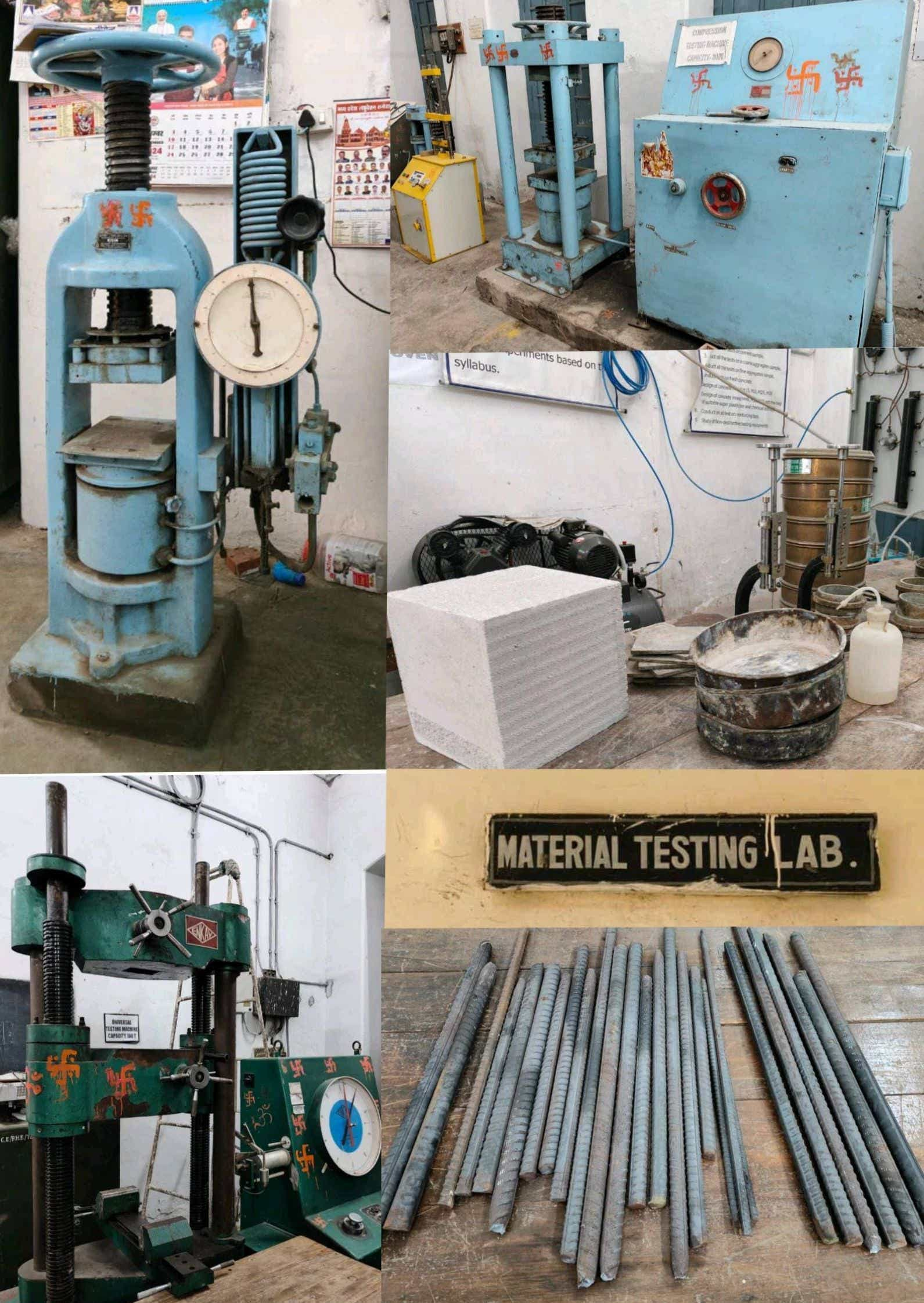
2. Structural Engineering Laboratory: In this laboratory, students conduct experiments on structural components and systems. The lab allows for the analysis of load-bearing structures, helping students understand design principles and failure mechanisms.
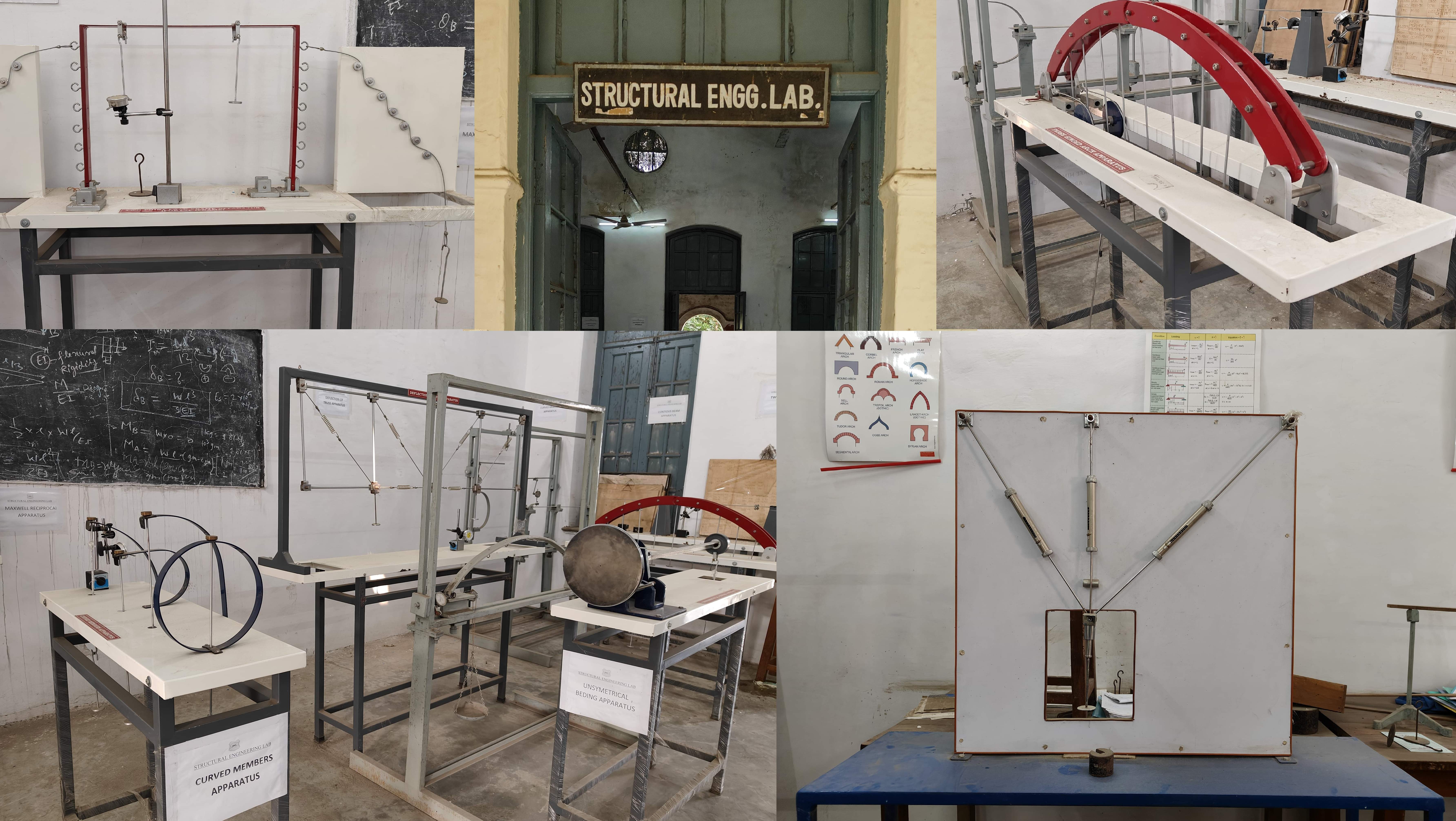
3. Geotechnical Engineering Laboratory: This lab provides insights into soil behavior and its interaction with structures. Students perform tests on soil samples to determine properties such as shear strength, permeability, and consolidation, essential for foundation design and earthworks.
4. Environmental Engineering Laboratory: This is dedicated to studying the impact of engineering practices on the environment and developing sustainable solutions. In this lab, students engage in experiments that focus on water quality assessment, wastewater treatment processes, air pollution control and solid waste management.
5. Transportation Engineering Laboratory: This lab is dedicated to enhancing transportation infrastructure through advanced testing and research. It focuses on key experiments such as aggregate testing, where the quality of construction materials is assessed by analyzing particle size distribution, specific gravity, water absorption and durability to ensure optimal performance in road construction. Additionally, the lab conducts critical evaluations of road bitumen properties, including viscosity, penetration, softening point and ductility, to determine the most suitable grades for asphalt mixes.
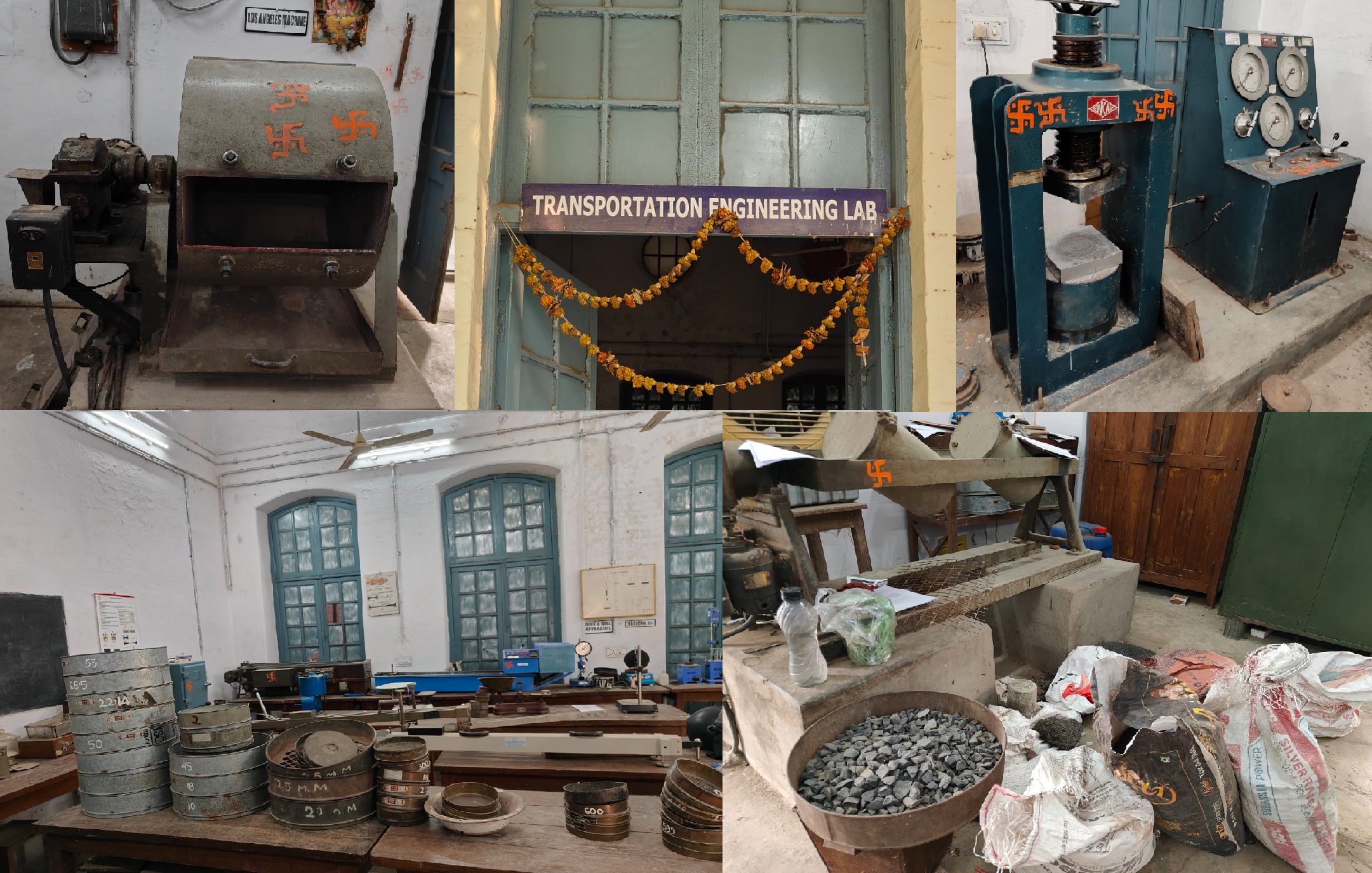
6. Fluid Mechanics Laboratory: This lab is equipped with a range of major instruments that facilitate hands-on learning and experimentation, including various types of pumps, turbines, Bernoulli apparatus, laminar flow setups, manometers, venturimeters and orifice meters. These tools allow students and researchers to explore fundamental principles of fluid mechanics and apply theoretical knowledge in practical scenarios. Some new instruments have also been added recently to the FM lab: the Metacentric Height apparatus, a Pressure Gauge Calibration setup and Laminar Flow Table. The Metacentric Height Apparatus allows students to study the stability of floating bodies, providing insights into naval architecture and marine engineering. Additionally, the Calibration of Pressure Gauges, ensuring accurate measurements in all fluid experiments. The Laminar Flow Table further enriches lab by facilitating the study of laminar flow characteristics and viscosity.
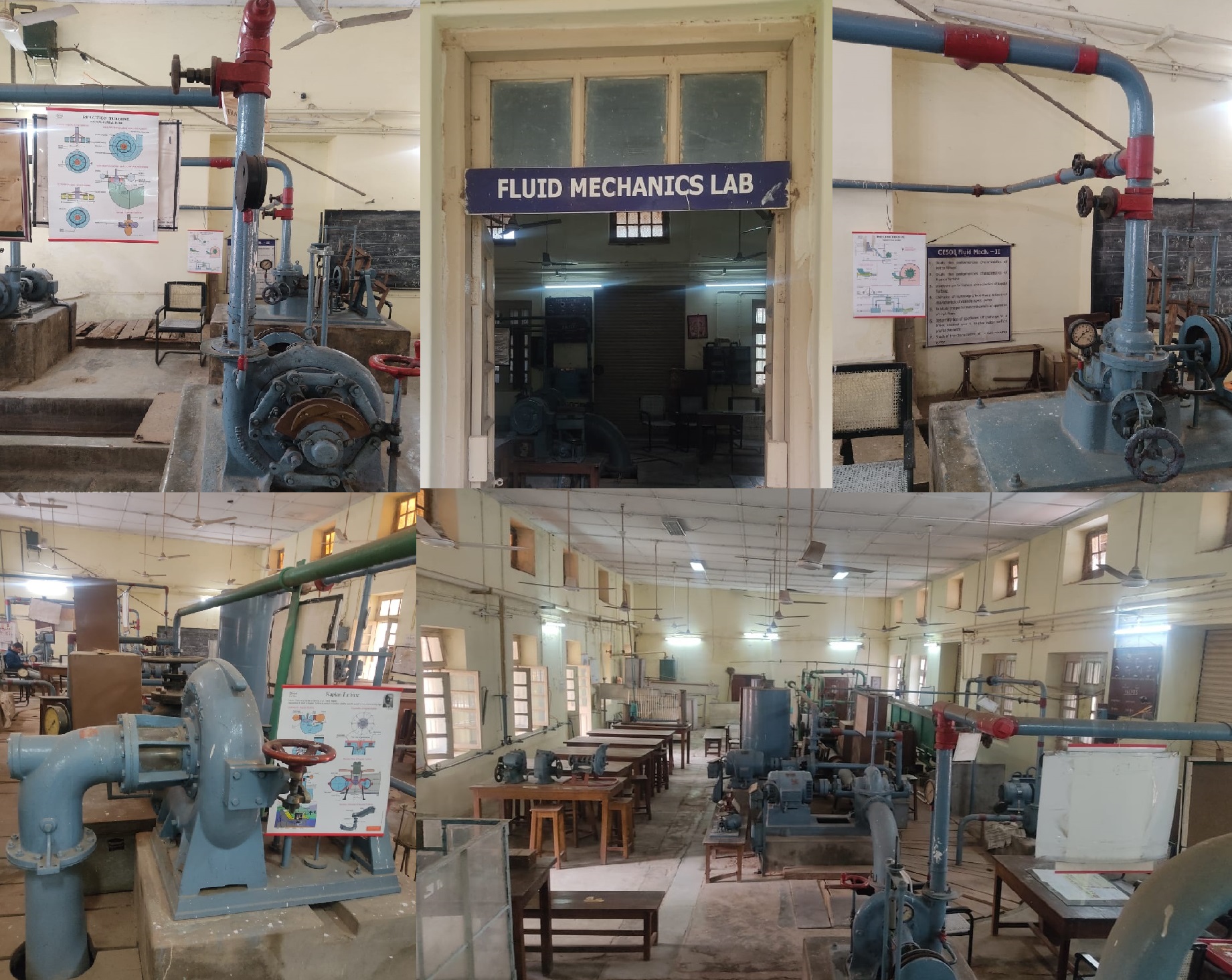
7. Surveying Laboratory: This Laboratory is dedicated to teaching students the fundamental principles and techniques of land surveying, which is essential for various fields such as civil engineering, construction and urban planning. This lab provides hands-on experience with the tools and technologies used to measure distances, angles and elevations, enabling students to accurately map and analyze land. Here students engage in a variety of practical exercises using traditional and modern surveying equipment, including levels, theodolites and total stations. Students also gain experience in data collection, processing and interpretation, which are crucial skills for any surveying professional.
8. Remote Sensing Laboratory: This lab is dedicated to advancing research and innovation through the analysis of satellite and aerial imagery. The mission is to harness cutting-edge technology to monitor environmental changes, assess natural resources and support urban planning and disaster response efforts.
9. Engineering Geology Laboratory: This lab focuses on the study of geological materials and their behavior in engineering applications. In the Engineering Geology Laboratory, students conduct a variety of experiments and analyses on soil and rock samples to determine their physical and mechanical properties. Students also learn to interpret geological maps and perform site investigations to assess subsurface conditions. The lab emphasizes the importance of understanding geological hazards such as landslides, earthquakes and sinkholes, which can significantly impact engineering design and construction. By integrating geological principles with engineering practices, students gain valuable insights into risk assessment and mitigation strategies. Through their work in the Engineering Geology Laboratory, students develop critical skills in problem-solving, data analysis and decision-making, preparing them to address the challenges of designing safe and sustainable infrastructure in diverse geological environments. This lab is essential for cultivating a comprehensive understanding of how geology influences civil engineering projects.
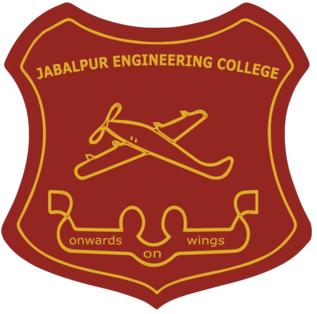

 Android App
Android App
 Facebook
Facebook Twitter
Twitter Youtube
Youtube Instagram
Instagram LinkedIN
LinkedIN